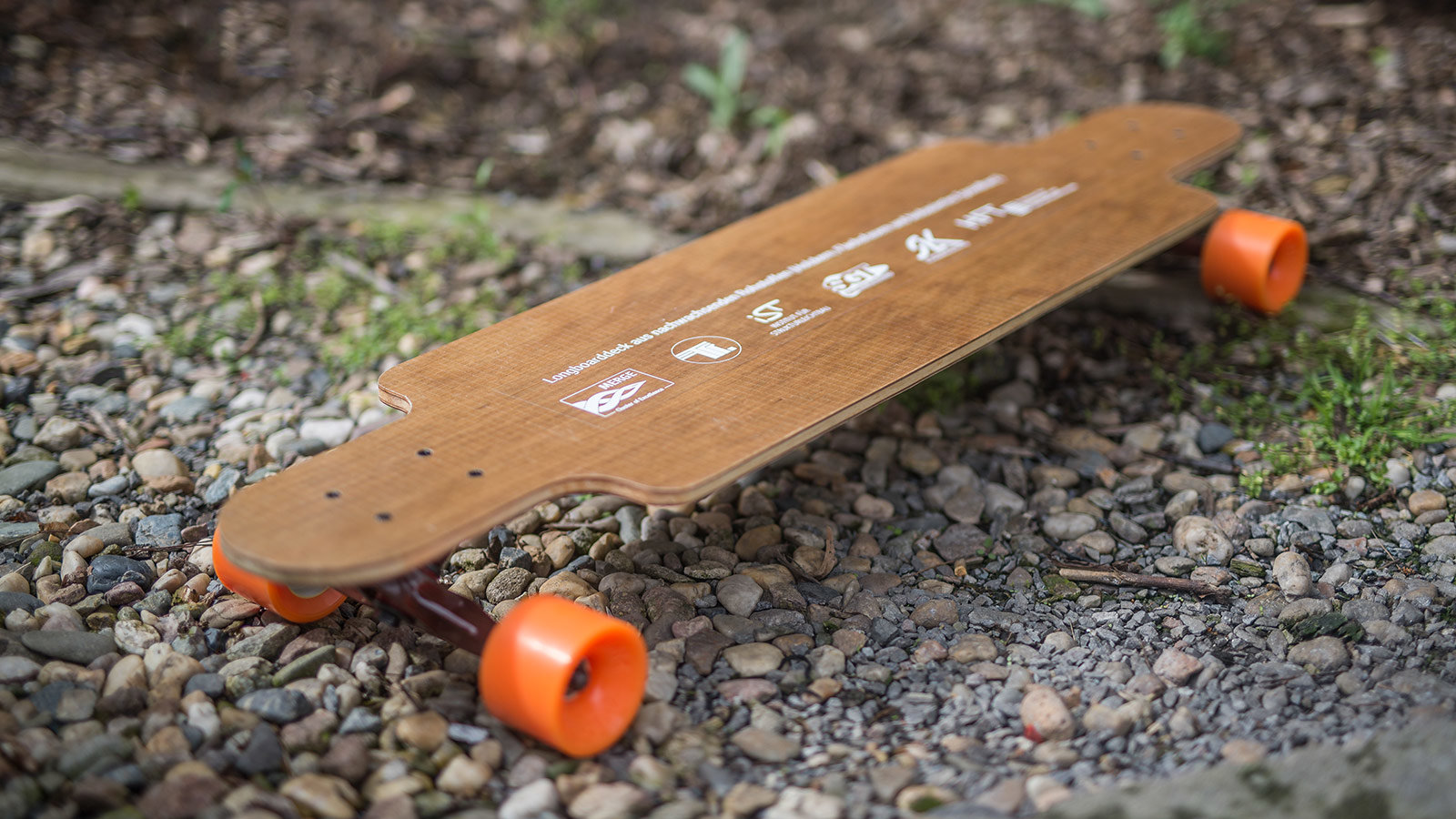Sustainable on snow and street
Scientists in the Federal Cluster of Excellence MERGE are developing longboards and snowboards made of renewable raw materials
-

The core of the sustainable longboard is veneered wood and the top layers are made of a fiber-plastics compound.
Not every board is alike and Jörg Kaufmann from the Professorship of Textile Technologies at the Chemnitz University of Technology is distinctively aware of that. Along with his colleagues he researches and tests targeted material characteristics of longboards. So far, they did not only design a longboard that is strong and marketable but also sustainable. “It is composed of a sandwich structure. The core is veneered wood from local woods. The top layers are made of a special fiber-plastics compound”, explains Kaufmann. For this purpose, flax fibers were inserted into the matrix of a bio-based epoxy resin. “The complete material compound has a very good carbon footprint and is thus a novelty on the market”, adds Kaufmann. As the researchers themselves are no manufacturers of boards they cooperate with the Chemnitz University Spin-Off company silbærg GmbH, which primarily focuses on the production of snowboards. This cooperation results in new research issues inspired by industrial needs but also in a scientifically funded impetus for the industry. This knowledge transfer is so successful that Kaufmann nominated the MERGE coordinator Prof. Lothar Kroll in the “future SAX Transferpreis”, acknowledging his support. “Future Sax” is a project of the State Ministry for Economic Affairs, Labor and Transport. The award is open to all types of technology and branches and aims at projects that focus on the design and effectivity of the transfer process.
But the joint work of the Chemnitz researchers does not stop at local borders or the field of structure lightweight design. In a current project, they are analyzing different fibers according to their mechanical characteristics, costs, and ecological assessment in cooperation with researchers of the Técnico Lisboa. Therefore, a future longboard or snowboard can be adjusted to the customers demand to either focus on sustainability, low prices, or newest technology, as Kaufmann illustrates. Prof. Uwe Götze, Vice President for Transfer and Academic Qualification, and Anja Schmidt from the Professorship of Marketing at the Chemnitz University not only support the project and the cooperation with their Portuguese colleagues but also coordinate a DAAD exchange program.
Two longboard models are now sitting in Jörg Kaufmann’s office, primarily for the experimental determination of parameters or used in academic teaching. Both were manufactured in a hot press procedure at the Chemnitz University as the manufacturing would yet be too expensive for large-scale production. “We are doing fundamental research”, explains Kaufmann, “but I can imagine to investigate and further optimize the production process during the second funding phase of MERGE.” For the time being the research group will present their results at the 3rd IMTC MERGE conference in September 2017 and will carry on to do research on the perfect board.
Current publications on the sustainable longboard and snowboard:
Further information are available from Dr. Jörg Kaufmann, Professorship of Textile Technologies, email joerg.kaufmann@mb.tu-chemnitz.de phone +49 371 531 36473
Matthias Fejes
28.06.2017




